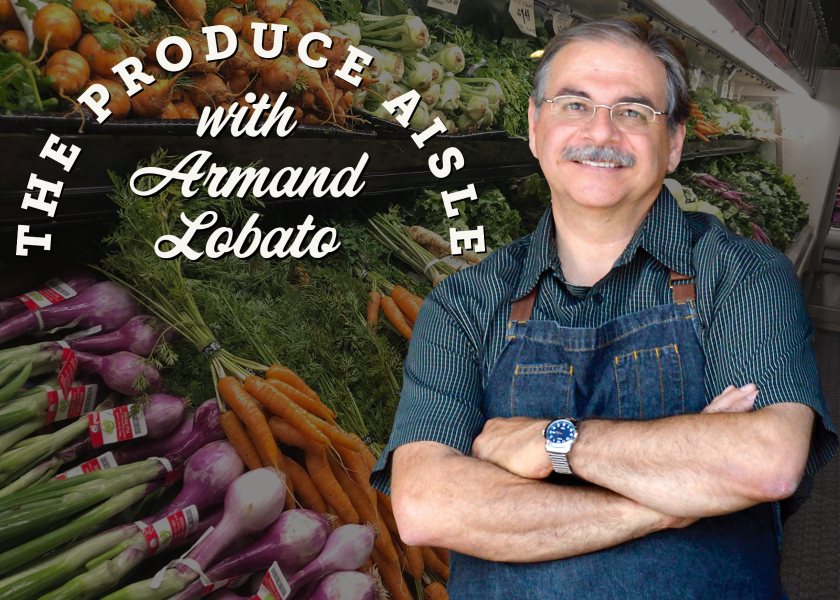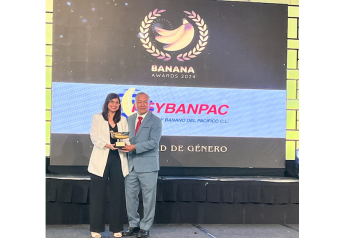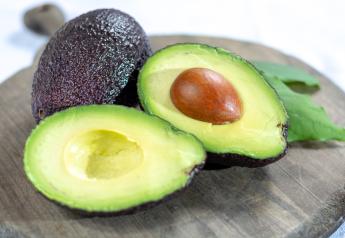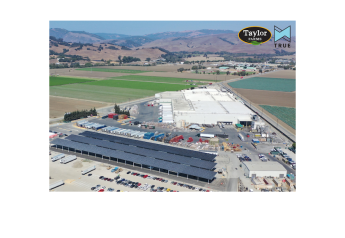Liven things up with a trip to the ‘boneyard’

To many people, working as a produce specialist or merchandiser appears to be an easy job — on the surface.
That’s because produce managers or clerks observed us when we did store visits. We reviewed up to eight stores each day, mostly unannounced. We dressed professionally, in a coat and tie, and carefully walked the produce department — sometimes side by side with the produce manager or the store manager, sometimes with both, sometimes with neither — with lots of notes to follow up on.
I could understand how we looked to the casual observer, who must have imagined our work involved breezing through the department and holding a clipboard, followed by long lunches. Or golf.
Hardly. Many times, the “walk” compelled us as supervisors to act. One great aspect about produce merchandising is that we could react to adverse conditions quickly. Sometimes the sport coat was ditched in exchange for a trim knife and apron. With a little direction and lot of crew hustle, a specialist can help right a listless produce ship in just a couple of hours.
In the more extreme cases, we had another advantage that the produce manager didn’t: access to what we called the “boneyard.”
At our warehouse we had a huge, dusty loft that was packed with overflow produce fixtures. I suspect many chains have something similar. Ours included a hodgepodge of older tables, orchard bins and incline tables, along with old-time scales, matching pans and much more. To the warehouse manager it was a pile of junk. As supervisors we saw it as a merchandising vault just waiting to be raided. And raid it we did.
Once we spotted a store that could use an influx of … something, be it an overnight table reset or opportunity to capture some valuable space, it was easy to envision what the boneyard might supply — especially when produce managers had no idea that supplemental fixtures even existed.
Related: Read more insight from Armand Lobato
Store managers loved our efforts for three reasons: For one, the fixtures came with no cost, and two, supervisors were salary, so store managers looked as us as “free” labor. (It’s not exactly how we thought of ourselves, but well, if the shoe fits …)
The third reason? Even a minor produce reset immediately boosted sales by 10% to 20%.
It was easy to have the boneyard fixtures and other supplies loaded onto the store’s regular produce delivery truck, typically a week or so prior to the reset. Then we’d meet the produce manager at the store to inspect, and if needed, have the fixtures repaired, cleaned up, re-stained or whatever it took to get them seaworthy for the reset. Then we’d draw up a merchandising plan, ensure that we had enough product ordered for the overnight reset and schedule any extra labor necessary.
The reset itself was a lot of work. But with a good plan and an influx of added boneyard fixtures, everyone was excited about this, the “poor man’s remodel.”
We’d often finish ahead of schedule, especially if the crew on hand was promised a company-paid hearty breakfast afterward — a well-deserved reward and motivation for giving up a night’s sleep and making the extra effort to merchandise their store into something a little special. There was always the occasional gloomy Gus on the crew, but most of the clerks were excited; something good was happening in their store.
After all the merchandising was finished, we cleaned up and a made a final walk-through with the store manager. As supervisors, we’d return from breakfast and change into our normal work duds, donning the sport coat to head out for our regular store visits. Not realizing that we’d just spent the night somewhere adding boneyard fixtures to some struggling store, it was inevitable that we’d be greeted at the next store by some wiseapple clerk or manager.
“I wish I had a job where I could just walk around with a clipboard and tie,” they would joke.
Looking over my glasses, I answered in a sleepy voice. “Yeah. So do I.”
Armand Lobato works for the Idaho Potato Commission. His 40 years of experience in the produce business span a range of foodservice and retail positions.







